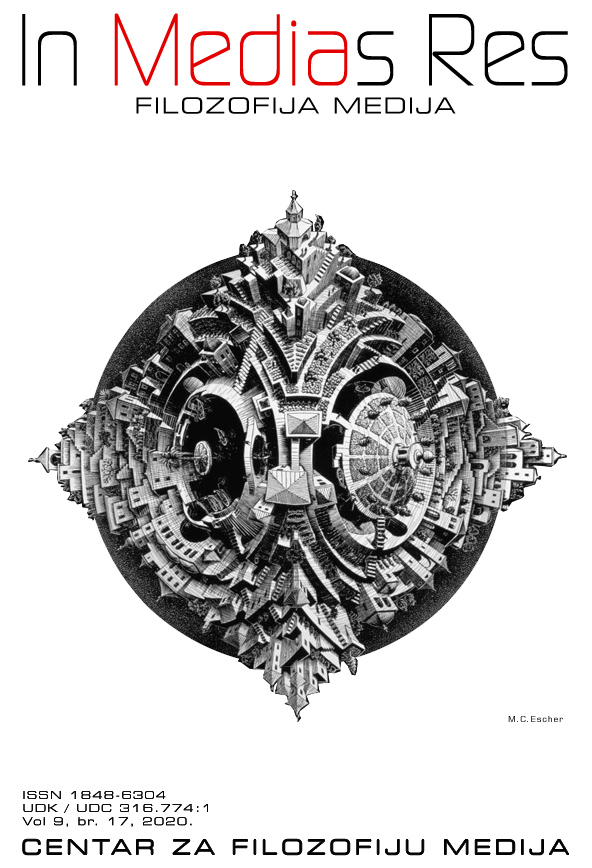Značenje bio-politike u doba numeričke revolucije: što ostaje od Foucaultovog i McLuhanovog nasljeđa? Konture novog društva izloženosti
The Meaning of Biopolitics in the Age of Numerical Revolution: What Has Remained of Foucault’s and McLuhan’s Legacy? The Contours of a New Expository Society
Author(s): Jure VujićSubject(s): Media studies, Communication studies, Structuralism and Post-Structuralism, Philosophy of Science, Theory of Communication
Published by: Centar za filozofiju medija i mediološka istraživanja
Keywords: biopolitics; power; numerical age; exposure; media;
Summary/Abstract: Marshall McLuhan, in the 1960s, coined the well-known phrase “the world is a global village” at a time when the Internet did not exist, and new communication and media technologies were about to transform the world into a planetary village via interconnection. However, McLuhan may not have anticipated that accelerated technological advances would be made possible by communication without a “physical mediator-factor” and that the utilitarian and instrumental dimension of communication would give way to cultural and social domination and manipulation. In the numerical age, Foucault’s notion of “bio-politics” as a system of complete control and regulation of the body and life by means of science and technology is, at first glance, an outdated term, belonging to the past of modern, biopolitical and repressive societies. The numerical control is today based on a deep urge for individual and narcissistic exhibitionism in the new expository society.
Journal: In Medias Res
- Issue Year: 9/2020
- Issue No: 17
- Page Range: 2745-2752
- Page Count: 8
- Language: Croatian

